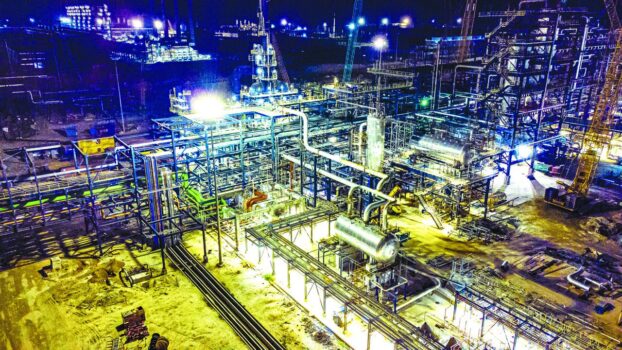 The Nigerian government has announced that the sale of crude oil to Dangote Refinery and other local refineries in naira will commence on October 1, 2024. This decision was disclosed by the Minister of Finance and Coordinating Minister of the Economy, Wale Edun, during a meeting with the Implementation Committee in Abuja on Monday.
The Nigerian government has announced that the sale of crude oil to Dangote Refinery and other local refineries in naira will commence on October 1, 2024. This decision was disclosed by the Minister of Finance and Coordinating Minister of the Economy, Wale Edun, during a meeting with the Implementation Committee in Abuja on Monday.
The Ministry of Finance confirmed this development in a post on its X (formerly Twitter) handle, noting that the meeting was focused on reviewing the progress of the transition to crude oil sales in the local currency. The post also highlighted the critical roles assigned to stakeholders, including the Nigerian Midstream and Downstream Petroleum Regulatory Authority (NMDPRA), Central Bank of Nigeria (CBN), Nigerian Upstream Petroleum Regulatory Commission (NUPRC), and the African Export-Import Bank, to ensure a smooth implementation process.
“The Honourable Minister of Finance and Coordinating Minister of the Economy, Mr. Wale Edun, today led the Implementation Committee meeting on the transition to Crude Oil Sales in Naira,” the post read. It further mentioned that the first delivery of Premium Motor Spirit (PMS) from Dangote Refinery is expected next month under existing agreements, as reported by Dr. Zacch Adedeji, Executive Chairman of the Federal Inland Revenue Service and Chairman of the Technical Sub-Committee.
During the meeting, Edun emphasized the importance of transparency in the transition process and directed the Technical Sub-Committee to finalize the details and prepare a report for the President. This report will confirm that the directives are on track for implementation starting in September.
The Finance Ministry also noted that significant production increases are expected from the Port Harcourt and Dangote Refineries by November 2024.
This decision follows the directive from the Federal Executive Council (FEC) on July 29, which mandated the Nigerian National Petroleum Company (NNPC) Limited to sell crude oil to local refineries, including Dangote Refinery, in naira instead of U.S. dollars. The Federal Government believes that this measure will reduce the strain on the country’s foreign exchange reserves and help stabilize the pump prices of petrol, diesel, and other petroleum products in Nigeria.

FG Declares April 18 And 21 Public Holidays For Easter Celebrations
Mutfwang Bans Night Grazing, Restricts Motorcycles After Fresh Attacks
House Committee Summons Rivers State Sole Administrator For Interactive Session
Dangote Refinery Cuts Petrol Ex-Depot Price To ₦835 Per Litre